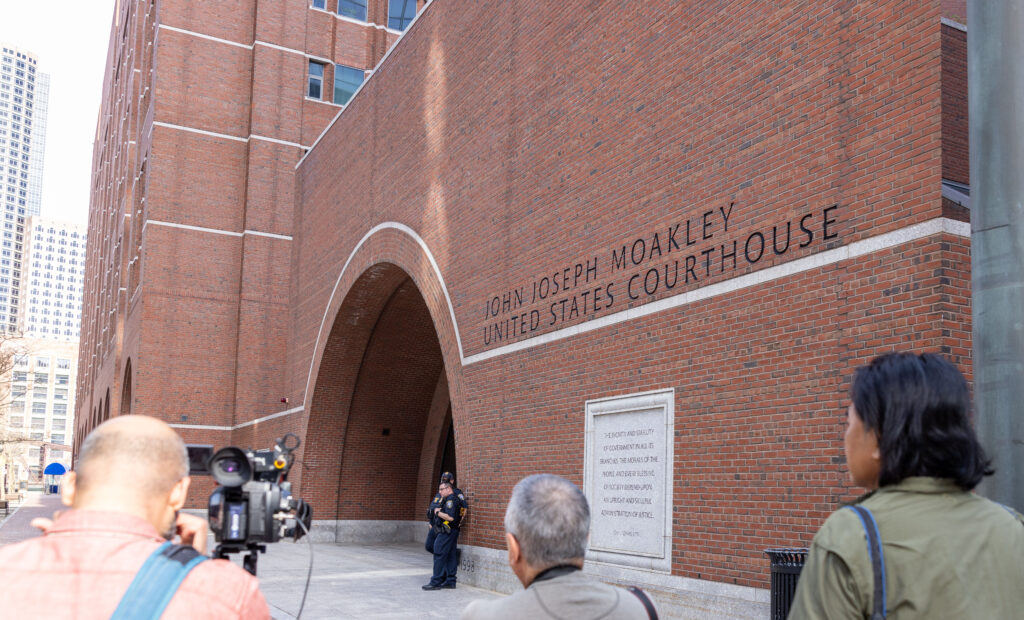December 19, 2023
Boston school officials did not discriminate against white and Asian students by basing admissions at elite public high schools in part on applicants’ zip codes and family income rather than the results of an entrance exam, a U.S. appeals court ruled on Tuesday.
This news was first reported by Reuters.
Boston school officials did not discriminate against white and Asian students by basing admissions at elite public high schools in part on applicants’ zip codes and family income rather than the results of an entrance exam, a U.S. appeals court ruled on Dec. 18.
A unanimous three-judge panel of the Boston-based 1st U.S. Circuit Court of Appeals said the city’s policy, which was in effect for one year during the COVID-19 pandemic, did not violate the U.S. Constitution because it was adopted to ease racial disparities in elite schools and not to discriminate against students of any particular race.
The court upheld a judge’s ruling dismissing a lawsuit by the Boston Parent Coalition for Academic Excellence, which had sued on behalf of five unidentified students.
The panel said a June ruling by the U.S. Supreme Court striking down race-conscious college admissions policies did not render Boston’s policy unlawful.
Circuit Judge William Kayatta wrote that the Supreme Court made clear that using socio-economic factors as a tool to increase diversity was not the same as giving explicit advantages to students of specific races.
Boston had changed its exam-based admission standards for Boston Latin School and two other elite schools in 2021 because the COVID-19 pandemic prevented the administration of an entrance exam. The coalition said that by setting quotas based on zip codes and then ranking applicants based on family income and grade point averages, the policy illegally favored Black and Latino applicants.
But the plan did not consider the race of any individual student to determine whether they would be admitted, the 1st Circuit said on Tuesday.
“And the Coalition offers no evidence that geography, family income, and GPA were in any way unreasonable or invalid as selection criteria for public-school admissions programs,” Kayatta wrote.
The coalition is represented by the Pacific Legal Foundation, a libertarian group. Erin Wilcox, one of its lawyers, said the ruling was disappointing and that the Supreme Court should review the use of racial proxies in school admissions.
“The First Circuit’s ruling today is a perfect example of why it’s so important for the high court to take up this serious civil rights issue,” Wilcox said in a statement
Lawyers for the Boston School Committee, which adopted the admissions policy, did not immediately respond to a request for comment.
The coalition had sued in 2021, alleging that the policy had a disparate impact on white and Asian students in violation of their rights to equal protection under the U.S. Constitution.
The percentage of white and Asian students at the three schools dropped from 69% to 41% after the policy was adopted, according to filings in the case.
But the 1st Circuit on Tuesday said it was not clear that the decrease was triggered by the new policy, and even if it were, there was no evidence that white and Asian students were under-represented at elite schools.
In fact, the court said, white and Asian students respectively made up 16% and 7% of the eligible student population, and 31% and 40% of successful applicants under the COVID-era policy.
The panel included Circuit Judges O. Rogeriee Thompson and Jeffrey Howard.
In May, the 4th Circuit ruled that a Virginia county did not intend to discriminate against Asian-Americans when it overhauled its admissions policy for an elite science and technology high school in 2020.
A group of parents who had sued the county, and are also represented by Pacific Legal, have asked the Supreme Court to take up the case.
The case is Boston Parent Coalition for Academic Excellence Corp v. The School Committee of the City of Boston, 1st U.S. Circuit Court of Appeals, Nos. 21-1303 and 22-1144.
For the Parent Coalition: Christopher Kieser of the Pacific Legal Foundation
For the Boston School Committee: Kay Hodge of Stoneman, Chandler & Miller
Read more:
Court leery of race bias claims over Boston school admission policy
.
Enter your Email Address below to get our fun-filled Newsletter!
© 2023 Black Enterprise. All Rights Reserved.

